#i actually already had a draft about it when you sent it... but i'm sooo slow with editing my word vomit
Note
You may have already mentioned this in some of your other metas, and I just missed it, so please ignore this if it's redundant.
Do you think Bruce is projecting onto Jason by pushing him as a Robin? Obviously, Jason wanted to be Robin and was excited about it, and Bruce let Jason do other things, but (if I'm not mistaken) before Tim came into play, solidifying the whole Batman needs a Robin/support to keep him upright, Bruce and Dick becoming Batman and Robin, in the beginning, was also sort of a coping mechanism.
I think there are a few examples of Bruce enabling this kind of mindset. Like in Gotham Knights #43–44 (sorry), every time Barbara brings up Jason's inner turmoil, Bruce refocuses on his ability as a Robin; similarly, when Jason finds out about Two-Face and his dad, he is hurt, and Bruce acknowledges that but then does the same thing, zeroing in on reassuring Jason that he made a mistake but is still a good Robin.
Like, Jason got it from Bruce, but he unintentionally encouraged that kind of thinking.
oh, i definitely think that bruce is projecting on jason and that it profoundly affected jay. and, while every single one of your observations is apt, i would add that what truly made it so tragic is that he projected his own worst traits on jason while being blind to the fact that jay already shared his best qualities.
tldr: bruce projects himself on jason in terms of grief (saying that jason needs vigilantism to work his grief through) and sees his own worst traits in jason (anger) but doesn't see his own best traits in jay (compassion, love, and sensitivity). ironically, jason does end up developing all of the (projected) worst characteristics of bruce (obsessiveness, and relentlessness in pursuit of the respective perceived idea of justice). this happens even though they were barely present in his early storylines, and only ever manifested when jason was scared or lost. later, they truly came to be because of his trauma relating to vigilantism.
and the long, long version, coming with panels and quotes: under the cut.
first i want to say that the following analysis focuses very specifically on bruce's mistakes, but i don't view the overall of jay's upbringing by bruce solely in these terms. from text it is also clear that bruce deeply loves and cares about jay, and that jay enjoys being robin. now that this is clear, let's get to particularities, and start with jay's origin story.
i truly never stop thinking about the significance of bruce meeting jay in the crime alley, the place of his parents' death. there's a lot to be said about it, but here the focus is, of course, on the fact that he sees a little boy, very much similar to himself, angry and hurt, in the same scenery that brought him so much grief. and jay in some ways does appear to be a mirror of bruce's own agonies, as well as a mirror of his own inclination for seeking justice; and somehow, bruce fixates on the first one, while almost completely dismissing the latter.
bruce looks at him and assumes that the remedy to jason's pain and anger is being robin; and he doesn't stop to think about it. (it has to be noted that there's also classism at play, classism that is mostly a result of writers' own beliefs – collins did state in a couple of interviews that that the motivation behind jason's background was to make his introduction into vigilantism seem less offensive, as jason has already been exposed to crime...)
i think, in this context, it's interesting to look at the two-face storyline even closer, and from the start too. in the beginning, bruce talks of jason's 'street' roots and assumes jay would go "down the same criminal road that took his father [willis] to an early death." he also talks of jason making a lot of progress. later, in batman #411, after jason learns that willis has been killed by two-face, bruce comments that jay "has never been like this...listless...almost pouting--"

this all, along with jay's cheerful and diligent behaviour from the previous issue builds an interesting picture for us: because we essentially learn that jay has been overall an unproblematic child. bruce, of course, attributes this "progress" to the training. however, for anyone else, the logical conclusion would be that jay's quick adjustment was simply a matter of finding himself in a safe and stable environment and receiving continuous support and attention from a parental figure. i find it rather questionable that jason's personality softened down because he had something to punch in the cave–– the more intuitive explanation is of course that he was angry and quick to fight when they first met because he couldn't afford anything else and because he was scared. but months later, in a loving home, he can allow himself to drop his guard; and his cocky attitude disappears until much later.
so the rather unsettling picture that we derive is that bruce is training jay to become a vigilante in order to "channel" his (nonvisible at this point) anger into something useful and just. and he clearly links this to his own trauma in batman #416 (that’s already starlin btw), in his conversation with dick, explaining why he took jay in: “he’s so full of anger and frustration… he reminds me of myself, just after my parents were killed.” bruce also mentions that soon after their first meeting, jason helped him and "handled himself well" in the fight, but he doesn't mention that jay has ran away from a crime "school" and intended to stop injustice on his own only because he was ignored.
the theme of bruce comparing jay to himself appears again in detective comics #574 (barr), where it is approached with a much more... critical look, thanks to leslie's presence and her skepticism of bruce's actions. after jason has suffered nearly fatal injuries at the hand of the mad hatter, bruce reminisces on his own trauma and motives. he tells leslie: "i didn't choose jason for my work. he was chosen by it...as i was chosen." leslie replies: "stop that! (...) you do this for yourself... you're still that little boy (...)" then, the conversation steers to the familiar ground and the topic of anger. in bruce's words, again: “i wanted to give jason an outlet for his rage…wanted him to expunge his anger and get on with his life…” and finishes "and instead, i may have killed him."
the recognition that bruce's projection on jason and involving him with his work might have fatal consequences is, as always, fast forgotten once jay wakes up and proclaims that he wants to continue his work as robin.
but to circle back, i think there's something else worth our attention, something deeply ironic, that is showcased in that issue: that bruce has no evidence for jay's "rage." when leslie talks of bruce's past, she recalls his tendencies to get into brutal fights at perceived injustice as early as in school; when bruce talks of jason, two pictures that are juxtaposed, are that of jason fighting as robin and jason... smiling, playing baseball.


so, in the early days of jason's training and work in the field, we see bruce talking of jason's anger a lot; but we barely see it.
that being said, jay is angry sometimes– and i think your observation about how bruce deals with it is incredibly interesting and accurate.
we first see jay truly and devastatingly angry in the two-face storyline. bruce focuses on jay's reaction as robin, which is, in fact, aggressive. but something that he barely addresses is that jason's first reaction is sleeping all day, and not beating anyone to a pulp; in fact, this vengeful instinct seems to arise only when he is put right in front of two-face. and his third instinct, once the rage (very quickly) dies down after the altercation with two-face, is crying, because bruce hid the truth about willis' death from him. jay, while crying, asks bruce: "you have taken me out into combat-- but you spare me this?" in response, bruce lectures jason about how grief inspires revenge, which is, again, deeply ironic, given that jay seeking out revenge seemed to be prompted and enabled solely by the role of robin. moreover, his question suggests that at this point he saw grief ("you spare me this") and fighting as two different things.
the final is, as you said, bruce focusing on making it into a lesson on vigilantism, or, in his own words, "tempering revenge into justice." personally, i think in this way bruce directs jason to bring his grief into the field as a powering force, something that he didn't necessarily have an own incentive to do. the flash of compartmentalisation between his ordinary life and being a sidekick that jay has shown by questioning bruce's decision is lost. emotions are now a robin thing, and they have an (informal) protocol, a moral code. and when jay is confronted with an emotionally exhausting case next – the garzonas case, i believe that the focus on "tempering revenge into justice" is exactly the problem– we don't see jay crying, we see him frantic about finding the solution. this, right there, is bruce's obsessiveness, that in my opinion, was developed in jay specifically as a result of how his engagement with vigilantism combines with his deep sensitivity.
and, needless to say, his sensitivity is all the same as that of bruce – they both can't stand looking at other people hurting, they both wear their hearts on their sleeve, caring way too much – the thing is, bruce never quite acknowledges how they are similar in this matter. instead, he focuses on his sparse bursts of anger, wanting to bring jason closure in his grief the only way he knows it – in a fight for a better world. so, as you said, he focuses on jason's ability as robin.
which just doesn't work for jason. at all. we know it from how his robin run comes to an end: in the first issue of a death in the family (batman #426) alfred informs: “i’ve come upon him, several times, looking at that battered old photograph of his mother and father, crying.” to that, bruce contends: “in other words, i may have started jason as robin before he had a chance to come to grips with his parents deaths.” he also tells jay that the field is not a place for someone who is hurting; a message that is the opposite of what he's been saying for years now, and something that i imagine was difficult for bruce to conceptualise, because then he would have to question his own unhealthy tendencies. it's a bit late to come to this realisation; bruce's self-projection that caused him to worry so much about jay's anger has already turned into a self-fulfilling prophecy that will fully manifest itself in utrh, when jason does the only thing he was taught to do with grief: try to channel it into justice.
#AHHH this took me so long for no reason at all. so sorry anon <3#anyway. i'm obsessed with your observation regarding bruce's focus on robin in the two-face storyline#i've already briefly considered it but you made me go back and reread it#and i just stared at these panels of jason in bed all day for like good 5 minutes thinking. jesus christ. jesus christ#“you spare me *this*?” <- this line is making me feel SICK TO MY STOMACH.#so maybe bruce is right when he says that he made jason like this in tfz.#and jay is of course even more right when he says that he didn't make him. he raised him#also don't apologise for bringing in gotham knights#i actually talked about it some before because it is a very good illustration of bruce projecting on jay#<- i didn't include it here bc my post was getting insanely long.#anyway back on the topic. i think it's so deeply sad that jay genuinely has no idea#that this is what bruce thinks#i think he would be DEVASTATED if he knew the way bruce fixated on the idea of his anger#hm. normal now.#thank you so much for this ask. you can tell i was delighted to answer it <3#i actually already had a draft about it when you sent it... but i'm sooo slow with editing my word vomit#outbox#jay.zip#jay.txt#dc#jason todd#core texts
197 notes
·
View notes
Text
ACTUALLY Hardcore Facts About Alexander Hamilton
Alright, take two.
I've already typed this entire thing out once, so this is likely going to be a lot more lazy than anything else I will ever post, so :).
Sources: Alexander Hamilton by Ron Chernow; John Laurens and the American Revolution by Gregory D. Massy; The Federalist by Alexander Hamilton; George Washington's Indispensible Men by Authur S. Lefkowitz; Lafayette by Harlow Giles Unger; Who Was Alexander Hamilton? by Pam Pollack and Meg Belviso
Hamilton wished for a war when he was like a baby. So if you know Hamilton, you know that one line where Hamilton says "As a kid of the Carribean, I wished for a war, I knew that I was poor, I knew it was the only way to rISE UP-" in Right Hand Man. Well, that line is based off of a letter Hamilton sent to his childhood bestie, Edward Stevens: "...Ned, my ambition is [so] prevalent that I... would willingly risk my life, tho' not my character, to exalt my station... I'm no philosopher, you see, and may be jus[t]ly said to build castles in the air... I shall conclude by saying I wish there was a war. Alex. Hamilton." Okay, dude, calm down, you're like two years old. I think he was actually like 14-16, but for dramatic purposes we'll say he was an actual infant (do I sound like Chernow?). But I hate how much this letter foreshadows. It's like he jinxed himself, its almost embarrassing.
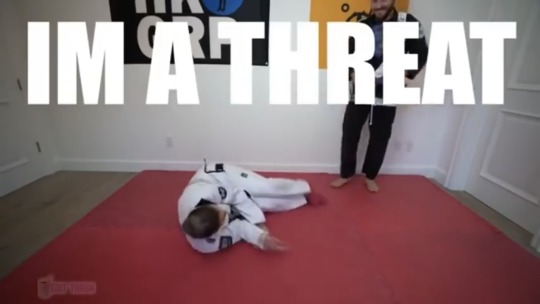
Hamilton ran a business at 14. Now if you've ever been fourteen and you were like "i think i feel like running a business" literally shut up no one asked. I think this is impressive. When Hamilton was at least 14, the guys the owned Beekman and Cruger (it had a different name by this time but this one sounds cooler) just dipped and left Hamilton in charge. This was actually a pretty good decision, since Hamilton managed it well. There was also this one time where Hamilton told a whole captain of a ship who didn't perform up to standard, "Reflect continually on the unfortunate voyage you have just made and endeavor to make up for the considerable loss therefrom accruing to your owners." This man was so arrogant I wish I had his confidence. Yeah that was cool ig, but if I met teenage-Hamilton, I'd literally hate him.

Hamilton saved the president of his college. Ever the dramatic, Hamilton had a thing for suppressing mobs (though he was pretty much never successful). There was this one time at King's College where a mob formed to "talk" with the president of the university, Dr. Myles Cooper (by "talk" i mean make him into a tory bird). And, according to Who Was Alexander Hamilton? (this book gives me so much joy), "Alexander vowed to protect him [aww]... He stood up to the crowd, telling them that violence would only hurt their cause. He couldn't stop the crowd, but he delayed them long enough for Dr. Myles Cooper to escape in his nightgown," (Pollack and Belviso 27-29). This is a really sweet description of it, but Hamilton was probably calling the mob a bunch of insults and stuff, judging by how he later handled riots. Also, Cooper thought Hamilton was rallying the mob, so he was a complete jerk to Hamilton, but rightfully. Everyone, bully Hamilton. He's short and dead like an idiot.
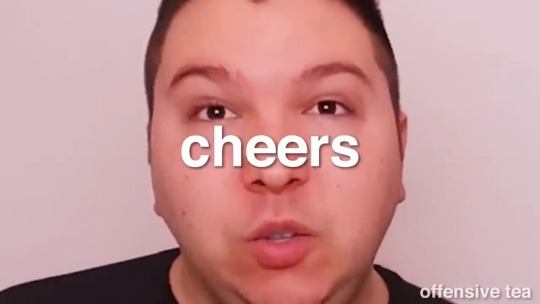
Hamilton was really cool on the battlefield, don't @ me. Now, despite being a clumsy little gremlin and an absolute dork, Hamilton was a pretty good leader, and I guess veterans deserve to be recognized for their victories or whatever. At the battle of Princeton, one of my favorites, Hamilton had very big, cool guns, and did some cool stuff. "Returning to the final phase of the battle of Princeton, British infantry took refuge inside Nassau Hall, the building that housed the College of New Jersey. American artillery commanded by Capt. Alexander Hamilton [ya boy] was brought to bear on the college building... Washington was on the scene and noticed this young artillery officer who skillfully commanded his gun battery. The general would soon invite Hamilton to become one of his aides-de-camp," (Lefkowitz 92). Wow so cool moving on to Yorktown.
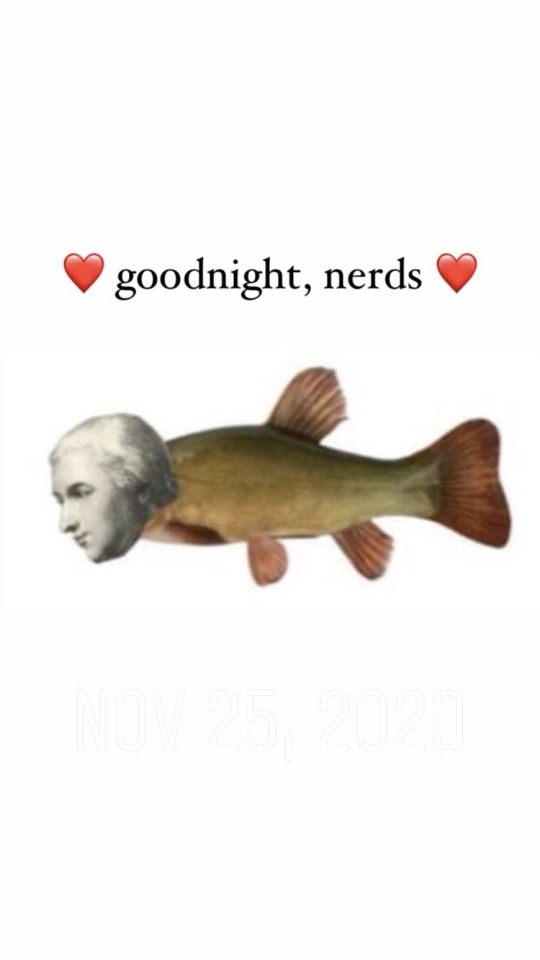
When the Americans were building their fortifications, two British fortifications were in the way. So rude. Consequently, Washington sent The Gay Trio, Lafayette, Laurens, and Hamilton, to uh, silence them. Hamilton pulled off a successful sneak attack, and won the battle swiftly, leading to the American victory in the battle of Yorktown, and therefore the war. "...Colonel Hamilton['s] well known talents and gallantry were on this occasion most conspicuous and serviceable. Our obligations to him, to Colonel Gimat [stan], to Colonel Laurens, and to each and all the officers are above expression..." -Major General Marquis de Lafayette. Lafayette is so nice I would marry him if he was alive and single and legal and not old as hell. Like omg he gave credit to everyone but himself that's so nice I'm such a simp for Lafayette. Anyway, Hamilton was cool too ig.
Hamilton caused the evacuation of Philadelphia like an iDIOT. So, after Brandywine (British victory), Washington sent Hamilton on a foraging mission in Vally Forge to get flour, horseshoes, and tomahawks (not quite as exciting as Yorktown). Well, our clumsy ginger rat got caught, and wrote to the president of Congress, John Hancock, "If Congress have not yet left Philadelphia, they ought to do it immediately without fail, for the enemy have the means of throwing a party [party rockers in the house tonight] this night into the city. I have just now crossed the valley-ford [Valley Forge], in doing which a party of the enemy came down & fired upon us."
Surprise, this turned out not to be the entire goddamn British army, it was just a few scouts sooo... let's just say Philadelphia wasn't happy. "Our Removal from Philad. Was owning to information that General Howe was crossing Schuylkill [River]... However tho' this Intelligence was from one of the General's family (Alexander Hamilton) it was not well founded & we wish we had not left Philad.," -James Duane. Yeeeaaahhh, that's awkward. Not the best way to get your name known in the capital, I must say.
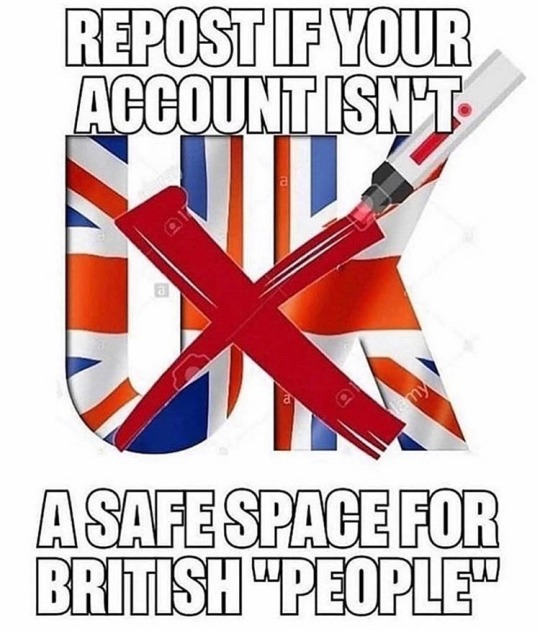
Hamilton was possibly bisexual, and this is hardcore because I say so. Now, I'll add more quotes to this later, but basically heres my interpretation of the historical evidence and whatnot. Basically, Hamilton was a really closed off, cynical guy, since like everyone he ever loved died or left him pretty much, and he wasn't really the type to make and keep close friends; "...how little dependence is to be placed on treaties, which have no other sanction than the obligations of good faith, and which oppose general considerations of peace and justice to the impulse of any immediate interest or passion," (Federalist 64); It is a known fact in human nature, that its affections are commonly weak in proportion to the distance or diffusiveness of the object," (Federalist 73). Um, Mr. Hamilton? You're projecting your trauma on the government again.
Also, despite working with him for like twenty years, Hamilton really never got close to Washington, like at all. He even said to Laurens, "I have no friendship for him and have professed none," in regards to Washington, which is kind of mean. But he ALSO told Laurens:
"Cold in my professions, warm in my friendships, I wish, my dear Laurens, it m[ight] be in my power by action rather than words [to] convince you that I love you. I shall only tell you that till you bade us adieu, I hardly knew the value you had taught my heart to set upon you. Indeed, my friend, it was not well done. You know the opinion I entertain of mankind and how much it is my desire to preserve myself free from particular attachments and to keep my happiness independent of the caprice of others. You s[hould] not have taken advantage of my sensibility to ste[al] into my affections without my consent."
*mocking Hamilton* its YOUR fault that i love you and it was RUDE that you FORCED me to love you how DARE you you SUCK i love you uwu.
Also, at the top of that letter, someone mysterious (probably Hamilton's son) wrote, "I must not publish the whole of this," and Massey still thinks Hamilton was straight.
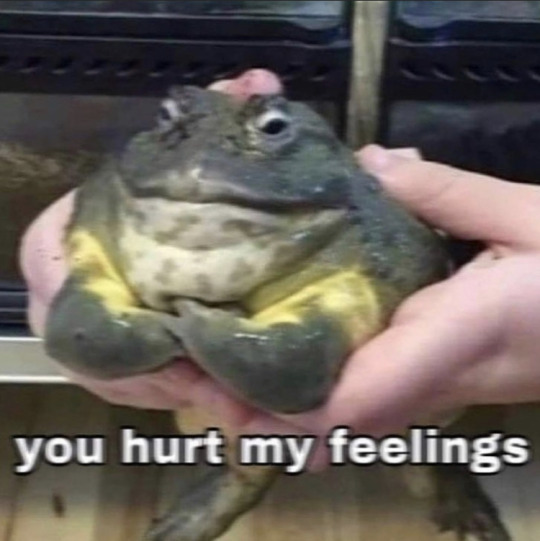
But yeah, that's about it. I had originally written more at the beginning, but I unfortunately lost the original draft, so I'll just settle for this. I hope you enjoyed, though, and maybe learned something or found a quote you needed or something. I did more research than I wanted to in one sitting for this, so appreciate it or I'll cry. Thanks love you <3
#alexander hamilton#hamilton#hamilton the musical#hamilton the movie#lin manuel miranda#ron chernow#aaron burr#weird history#george washington#amrev#amrev history#american history#american colonies#american revolution#the american revolution#the american war of independence#colonial america#stupid clumsy ginger gremlin#dorkface loser baby man#stupid litte idiot i hate him#he had his moments tho#this post hurt me financially#need a national bank now ig :/
89 notes
·
View notes